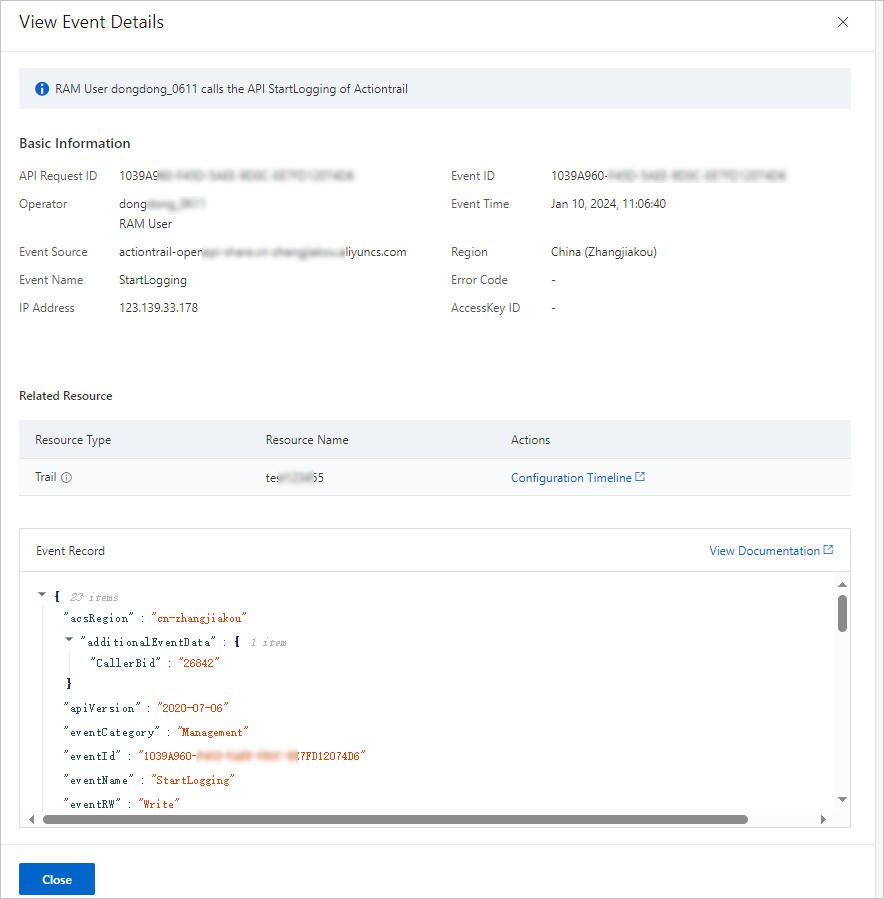This topic describes how to use ActionTrail's system templates to retrieve and view log information about network and data security events.
Prerequisites
Make sure that you have created a trail and delivered events to Simple Log Service (SLS). For more information, see Create a single-account trail and Create a multi-account trail.
Background information
Following network and data security best practices lets you continuously and dynamically monitor your Alibaba Cloud resources, obtain real-time information about their security and compliance status, and effectively reduce network security risks.
To help you detect high-risk actions, ActionTrail provides multiple query templates that are based on network and data security best practices. You can use the advanced event query feature to quickly use these templates to monitor and audit high-risk access events. The supported events include trail changes, audit trail stops, RAM role changes, and the disabling of Cloud Firewall.
Procedure
Log on to the ActionTrail console.
In the left-side navigation pane, choose .
In the Query Range section, select the created trail from the Trail drop-down list.
On the Template Library tab in the Query Range section, choose .
On the Trail Change Events tab, specify a time range to query events and click Run.
NoteBy default, ActionTrail queries the events within seven days.
You can click Event Alert on the right side of the tab to configure an alert for the current event. For more information, see Create a custom alert rule.
You can modify the default SQL statement in the system template and click Save to save the template as a custom template for reuse in subsequent tasks.
View the query results.
Raw Log
On the Raw Log tab, find the event that you want to view and click View Event Details in the Actions column. Then, you can view the basic information about the event and the event records.
NoteIn this example, the View Event Details panel shows that a Resource Access Management (RAM) user enabled the trail at 11:06:40 on January 10, 2024 in the China (Zhangjiakou) region.

Query Histogram
On the Query Histogram tab, view the histograms of events.
References
You can also query event details by setting filter conditions or specifying SQL statements. For more information, see Perform custom event queries.